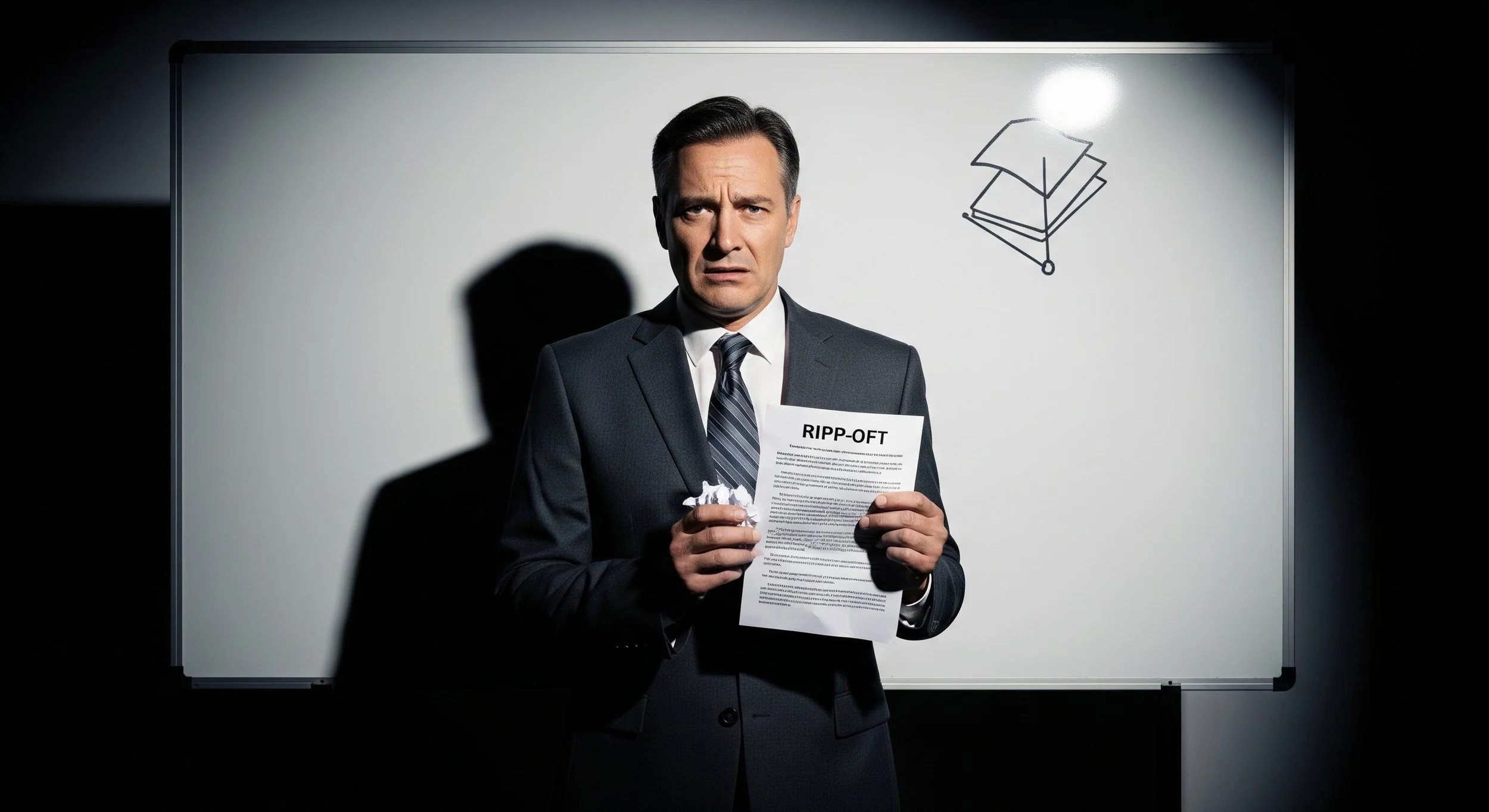Plagiarism is Alive and Well
Generated by Jeff Nelson using Gemini
TL;DR: Plagiarism didn’t go away. It just got rebranded as “content,” and now it’s running half the internet.
_______________________________________________________________________________________________________________________________________________
Let me start with an apology: Sorry to all my professors (Ron Murch) and all the students who have been in the classes I taught over the years.
In schools and universities, plagiarism is treated like a felony. Copy a few lines from Wikipedia and boom—you're one foot out the door with an F on your transcript and a stern lecture about “academic integrity.”
But step into the real world? Plagiarism isn’t just alive and well—it’s thriving.
LLMs and AI have made the act of plagiarism even more tempting. I am guilty of this pleasure, as evident in this blog post and other posts I have written.
Let’s take a look at some of its favourite hiding places.
1. Google: The Plagiarism Smorgasbord
Have you ever searched Google for a recipe? If you scroll through the first ten results, most of the articles and recipes are slight variations of each other. Same tips, same structure, sometimes even the same stock photos.
This is not a coincidence. This is SEO 101: copy what’s already ranking, change a few words, slap on a new headline, and hit publish.
It’s not called “plagiarism” anymore—it’s called content marketing.
2. AI: Fast, Fluid, yet Still Copied from Somewhere
Now, let’s talk about the new kids on the block: ChatGPT, Perplexity, DeepSeek, Claude, Gemini, Grok, and their robot cousins.
These tools are trained on oceans of human-created content—blogs, books, tweets, Reddit rants—and then regurgitate eerily convincing “original” content. Ask for information about productivity, and you’ll get results that are a mashup of ten Medium articles and a fortune cookie.
Are the results a copy word-for-word? Rarely. But are they repackaging the work of millions of creators without credit or compensation? Absolutely!
In school, that’s cheating. In tech, that’s innovation.
3. The Music Industry: Remix, Sample, Sue, Repeat
Musicians have been “borrowing” from each other since the first guy figured out how to bang two rocks together in rhythm.
“Sampling” is basically copying, assuming you remember to ask permission. If you don’t? Con
gratulations, you’re going to court. Just ask:
Vanilla Ice, who had to cough up cash to Queen and Bowie for “Ice Ice Baby.”
Robin Thicke and Pharrell, who got hit with a $5 million fine for sounding a little too inspired by Marvin Gaye.
Olivia Rodrigo, who proactively handed out songwriting credits to avoid legal drama over similarities to Paramore and Taylor Swift.
Meanwhile, TikTok has turned recycled video hooks into an economy. Your favourite viral sound? Probably a remix of a remix of a remix.
Plagiarism? Nah. It’s retro now.
4. The Startup World: Copy, Pivot, Pitch
Silicon Valley might be the most elegant plagiarist of all.
Startups love to “disrupt”—usually by copying an existing business, changing the colour scheme, and calling it a revolution. Airbnb for dogs (Rover). Uber for horses (HorseAlert.
Even the pitch decks are plagiarized. Founders routinely swipe design ideas, pricing models, and “go-to-market” strategies from each other. And if someone beats you to market? Just call it fast following.
Facebook? Not exactly Zuckerberg’s original idea.
Threads? Twitter, wearing Instagram’s shoes.
MS Word? WordPerfect with and new interface.
MS Excel? Who remembers Lotus 123?
Slack? Originally a gaming tool that got tired of failing and pivoted into a glorified chat app.
The secret? Nobody cares who had the idea first—just who makes money off it.
So What’s the Verdict?
In school, plagiarism gets you detention. In real life, it gets you clicks, followers, and sometimes funding.
We pretend originality is sacred, but in practice? We reward speed, polish, and the ability to remix better than the last guy. Google wants you to echo the top-ranking result. AI wants to guess what everyone else would say. Startups want to copy a unicorn and scale it faster. And the music industry? Just don’t get caught—or at least, don’t sample Marvin Gaye.
It’s not that creativity is dead. It’s just that plagiarism got better.
PS. Yes I used ChatGPT to help me write this article
